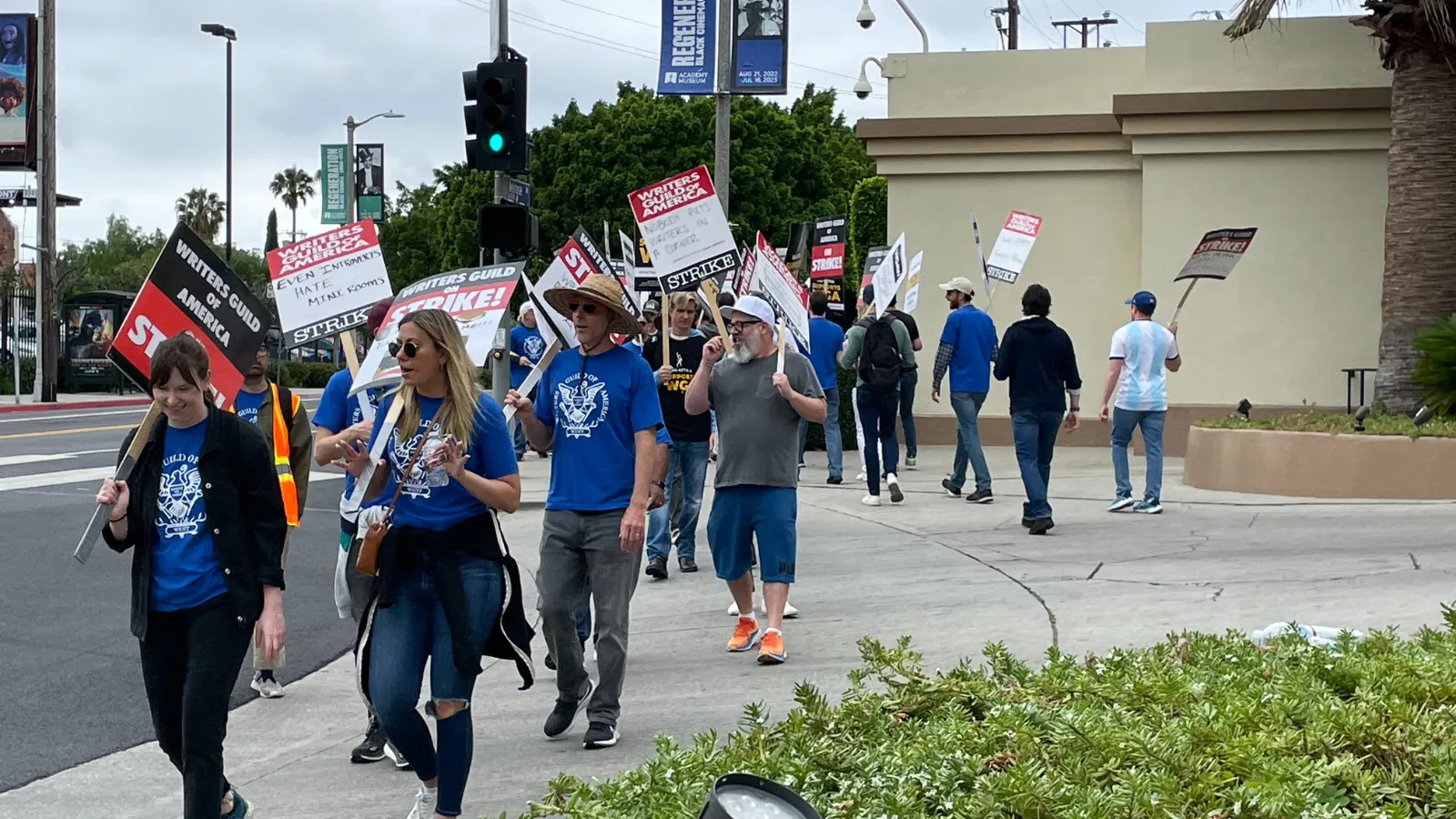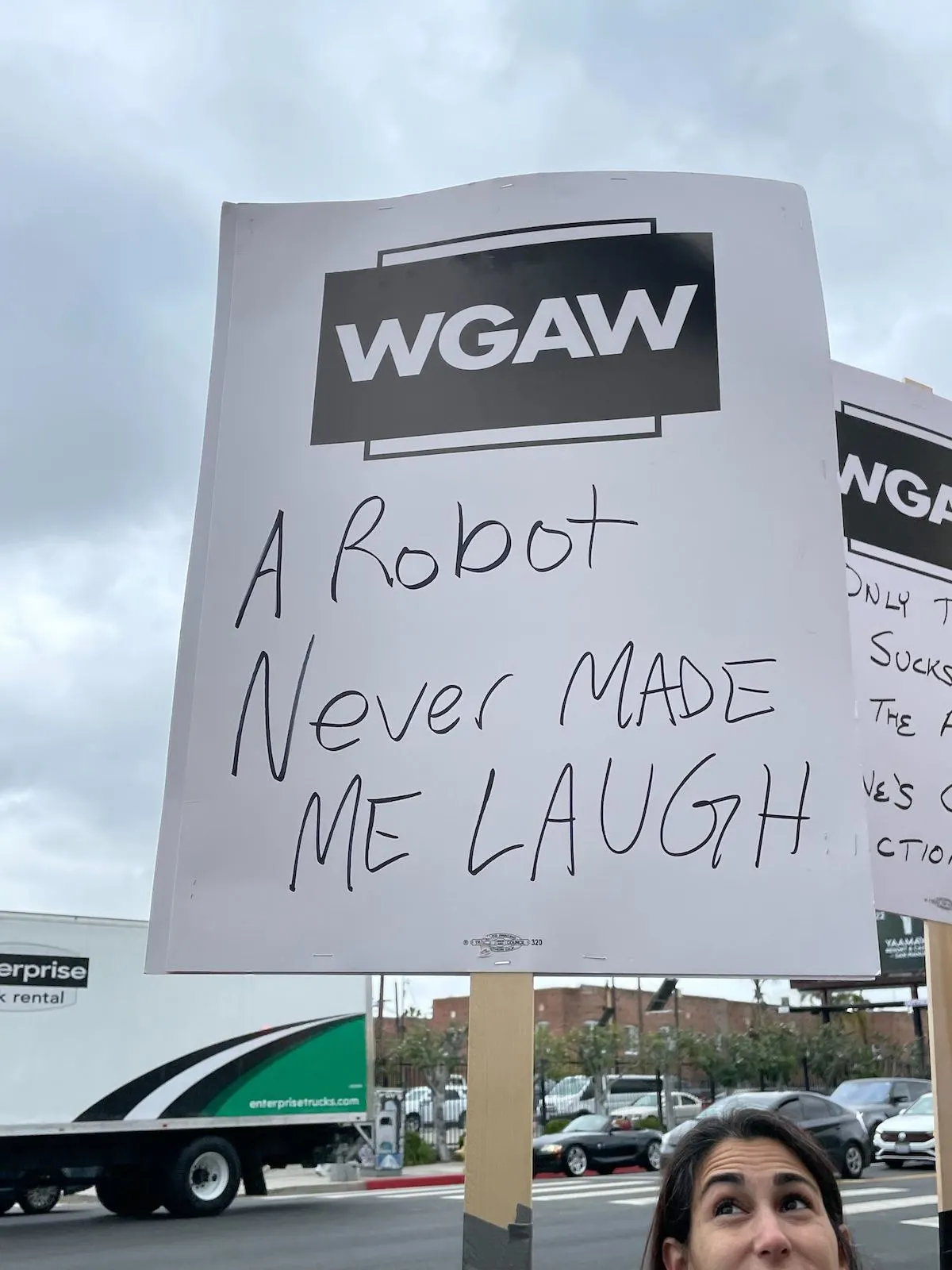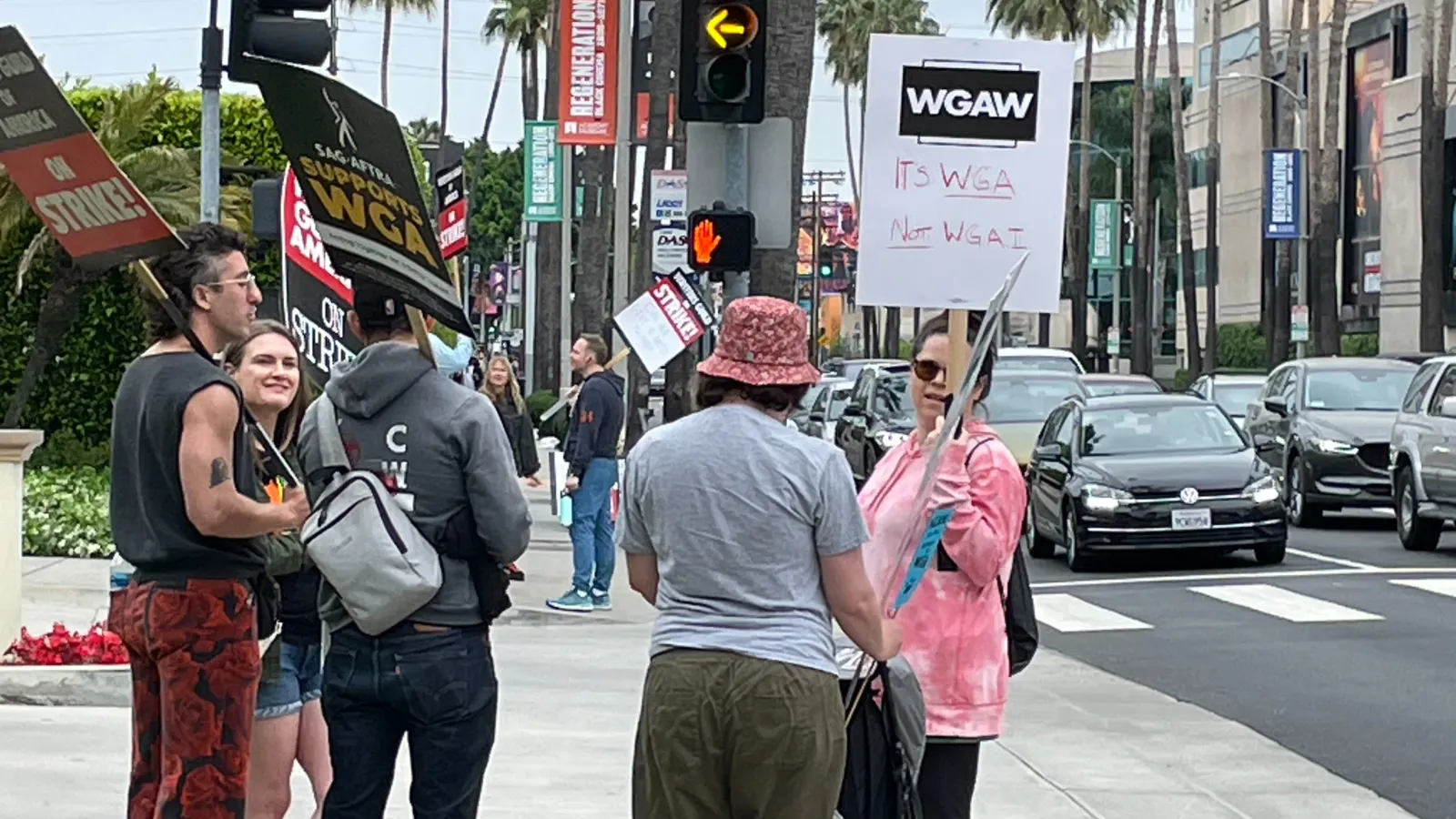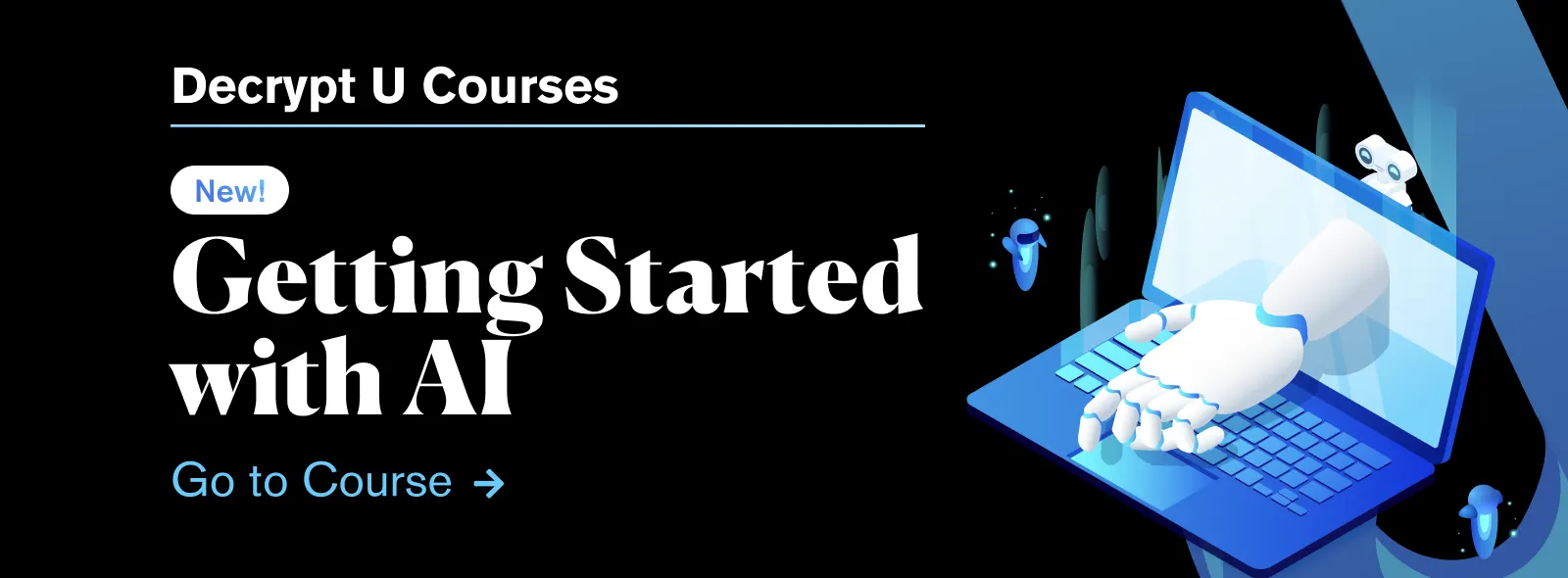The rise of generative AI, the buzziest thing in the tech world today, is also on the minds of TV and film writers as they try to reach a fair and equitable agreement to end the ongoing Writers Guild of America (WGA) strike.
The dispute between the WGA and the Alliance of Motion Picture and Television Producers (AMPTP) has entered its second month, and June gloom is setting in over Hollywood. Striking writers remain determined to have their voices heard and demands met, and one of the key sticking points is how AI tools potentially put creative jobs at risk.
"We understand it's not something we can walk away from," screenwriter and TV producer Josh Friedman told Decrypt on Thursday outside the historic Paramount Pictures lot in Los Angeles. "We're here."

The use of AI remains a critical factor in the WGA's negotiations. The WGA’s proposals include regulations on the use of AI for projects covered by the union's Minimum Basic Agreement (MBA), or the collective bargaining agreement that covers the benefits, rights, and protections for most of the work done by members.
The union proposed a regulation that AI cannot write or rewrite literary material for such projects and can’t be used as source material, plus MBA-covered material also can’t be used to train generative AI. The AMPTP rejected the proposal.
"Our concerns are very specific," Friedman said. The response from the AMPTP, Friedman said, was a promise to meet again once a year to discuss where the technology is at.
Concerns over generative AI aren't the only reason the WGA is striking. Other key demands include increased pay, greater residuals for shows that have significant viewership and on services with considerable international subscriber counts, and a more reliable compensation structure across various stages of film and TV projects.
AI takes over Hollywood?
While AI's potential dangers to humanity have dominated the news lately, Friedman believes that it's not yet time to worry about a sentient threat like Skynet in "The Terminator." And he should know something about it, having created the TV series “Terminator: The Sarah Connor Chronicles” and co-created the story for “Terminator: Dark Fate."
Formed in 1954, the Writer’s Guild of America (WGA) is one of the largest unions in the entertainment industry, boasting over 15,000 members. With its membership currently off the job for weeks now, most major film and television productions have ground to a halt.
Joining WGA members on the picket line in solidarity were members of the Screen Actors Guild (SAG). Although he wasn’t speaking for them, Friedman said that SAG members should also be concerned about AI-generated images and voice deepfakes.
"That's a 'now' problem," Friedman said. "I don't think we're far away from AI-directed material. Everyone should be concerned about it."
One of the things that AI-generated writing is missing, Friedman said, is the human element that creates great stories. Modern AI tools may be able to generate a passable facsimile, but as some of the more amusing picket line signs teased, they’re not as capable of yielding a real emotional response as a skilled writer would be.

"Much of what we write comes from ourselves," he said. "Things we love, hate, are afraid of, and things that happened to us when we were kids; what happened to us yesterday."
Friedman also took issue with how AI chatbots like OpenAI’s ChatGPT and Google’s Bard generate their content, saying it “isn’t writing—it’s scraping other people’s work.”
"It's a plagiarizing machine,” he added.
Writers won't wait
Crossing Melrose Ave. to another group of picketers, additional WGA members shared their concerns with Decrypt about studios using AI tools.
AI "is a huge problem," writer and producer Molly Nussbaum ("Brave New World") told Decrypt outside Raleigh Studios. "On an existential level, it devalues the work we do as writers and the creative process. Calling it 'grunt work' or just saying we can farm this out and then you can just punch it up... it shows a complete lack of understanding of what we do."
After the launch of OpenAI's ChatGPT in November and the more advanced GPT-4 model in March, AI and its potential use cases became a hot topic worldwide, particularly in the entertainment and news industry. That sounded alarm bells throughout the WGA membership.
As Nussbaum explained, AI was front and center when the WGA asked its members about priorities for the upcoming negotiations. In May, computer scientist and actress Justine Bateman urged action in a tweet thread detailing how AI could disrupt the entertainment industry—and what actors can do to protect themselves.

"I know it's a business, but it's an entertainment and arts business," Nussbaum said. "We need to remind ourselves that that's part of it," she added, also likening the use of artificial intelligence to plagiarism.
"If you use that to write a paper in college, it's considered plagiarism. Why would it be anything different if you use it to write a pitch?" she added. "AI is not generative; it's just regurgitating a mix of what it finds on the internet and already existent sources.”
Nussbaum once believed that Hollywood's shift to AI was a problem for the future—but now feels like it's an issue for today that can't wait while the role of creative writers is potentially marginalized by emerging technology.
"If we don't start putting provisions in now, then there won't be a chance to deal with this in the future. The ship will have sailed," Nussbaum said. "I think that's why everyone feels really strongly that we want to get out in front of it now, so that we can have some skin in this game—and it's not too late."
Interested in learning more about AI? Check out our latest Decrypt U course, “Getting Started with AI.” It covers everything from the history of AI to machine learning, ChatGPT, and ChainGPT. Find out more here.


